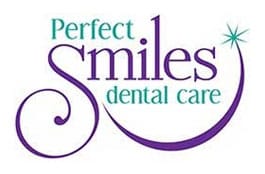Dentures and Partials
Dental Dentures

Benefits of Full Mouth Dental Implants and Dentures
Dental implants offer significant advantages over other teeth replacement options. Not only do they look and function like natural teeth, dentures are designed to last a long time. Finally, implants are more comfortable and more “wearable” that conventional dentures. This allows you to bite and chew in a natural, normal motion.
Denture Benefits at a glance:
-Eat just about any type of food. Experience a natural chewing (mastication) motion
-Denture patients report feeling confident and having a high level of self-esteem knowing their dentures are aesthetically appealing and match the appearance of their face
-Durability and sustainability
-Improved comfort compared to other solutions
-Patients report having ease of pronunciation, reduced worrying about stumbling over fricatives or struggling with sibilants when speaking in public, with friends or family.
Why choose us ?
- Dr. Boldry is a Board-Certified Prosthodontist. This is a three-year dental specialty after completing four years of dental school. She is a dental specialist in dentures, partials and full-mouth rehabilitation. The dentures she fabricates for patients are life-like custom made cosmetic dentures. Dr.Boldry also can fabricate dental implant retained dentures. Unlike a denturist, Dr. Boldry is trained in all aspects of general and cosmetic dentistry and is not limited to denture production and repair.
- Implant retained dentures allow the patients to be able to eat just about any types of food. The reason many denture wearers stay home and never go to any civic functions, church picnics, reunions, parties or family gatherings is because they are afraid they will be served food they cannot eat with their existing ill-fitting dentures. Implant retained dentures will allow these traditional denture wearers to get out of the house and attend public served dinners and eat just about any types of foods with confidence. Patients report that their social lives improve and they are happy.
- Full-mouth rehabilitation With Dr. Boldry’s specialty of full-mouth rehabilitation, she can take patients who have severely worn teeth and/or missing teeth and completely restore the patient with totally functioning back teeth and with a new beautiful smile in the front. She can do this by using dental implant porcelain crowns, custom porcelain life-like crowns and bridges, tooth-colored, mercury-free bonded retained fillings, and custom cosmetic partials and dentures. Patients look and feel years younger. Dr. Boldry changes lives, one smile at a time.
We invite you to call our office and schedule an appointment. 913-631-2677.
Types of Dentures
What Types of Dentures Are There?
Those who have lost all or most of their teeth are candidates for Complete Dentures, which replace all of the teeth. Those who have some natural teeth remaining may consider a partial denture which can fill in the space created by missing teeth in from the other teeth from changing position. This type of denture usually consist of replacement teeth attached to a pink or gum color plastic base which is held in place by metal framework or class or natural looking connectors called precision attachments
Conventional Dentures are placed in the mouth after any remaining teeth are removed and the tissue has healed which may take a few months
Interim Dentures are temporarily placed in the mouth so this means you won’t have to go without teeth during the healing process. . You’ll have your final denture designed after healing is complete approximately 3 months
Overdentures fit over a small number of remaining teeth are implants after they have been prepared by your dentist your dentist will usually try to preserve your remaining natural teeth saving these teeth can help preserve your jawbone and provide support for the dentures
Caring for Your New Dentures
How Do I Get Dentures:
The process of getting Interim or Final dentures takes anywhere from two to six weeks. A final denture consists of several appointments after the initial diagnosis. The dentist will take Impressions and measurements of your drawing, create models to determine the appliances shape and position. The dentures color, shape and fit will be assessed during multiple appointments before the final appliances are cast. After you receive the final dentures, the dentist or prosthodontist will make any adjustments as necessary.
What should I expect?
Your new dentures may feel awkward and loose for a few weeks as your cheek and tongue muscles learn to keep them in place. Your speech may be temporary temporarily affected. Some patients report an increase in saliva flow for a short time. It’s also normal to experience some minor irritation and soreness as your mouth becomes accustomed to dentures. If these problems persist, discuss them with your dentist.
How long should I wear my dentures?
Your dentist will provide you with instructions regarding how long to wear your dentures and when to remove them. You may also be asked to wear them all the time including during sleep for the first several days to identify areas that need adjustment. Under normal circumstances, however, it is likely that you will remove them at night.
How do I care for my dentures?
Dentures should be brushed everyday to remove food particles and plaque to prevent staining. After rinsing the appliance, gently brush all of its surfaces using the soft bristle toothbrush and non-abrasive denture cleaner (not toothpaste).
When you’re not wearing your dentures, keep them in a safe place and soak them in water to prevent them from losing their shape. If you use an adhesive, make sure to follow all the product’s usage instructions carefully .
Before inserting your dentures, brush your gums, tongue, and the roof of your mouth with a soft-bristled brush to stimulate tissue circulation and remove plaque. In addition to maintaining good oral hygiene, you should continue to see your dentist for follow-up appointments and regular check-ups. Should you encounter any problems with the fit or they become damaged, contact your dentist right away.
Preventing Denture Stomatitis:
Without proper cleaning, a condition called denture stomatitis may develop. Commonly known as “denture sore mouth” denture stomatitis may be caused by a number of conditions including candida, plaque and tartar build up or an overgrowth of yeast. Patients who may develop denture related stomatitis typically develop the condition by leaving their dentures in their mouth for extended periods of time. By regularly cleaning your dentures with a quality denture cleaner and removing them while you sleep, you are less likely to develop denture stomatitis.
